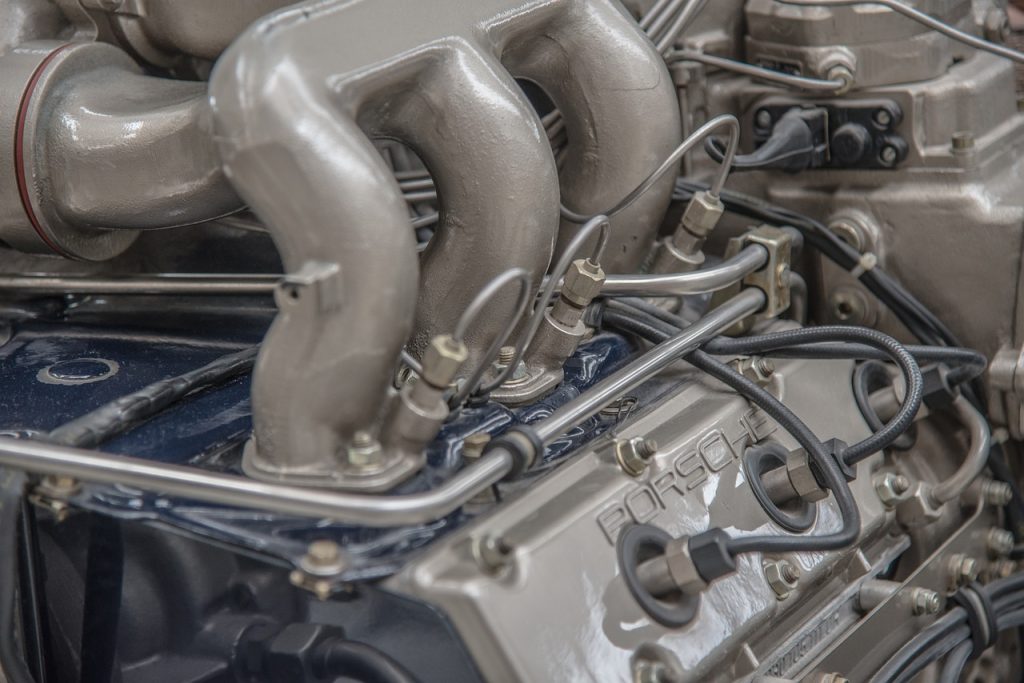Fuel efficiency has come to play a central role in today’s market for vehicles. It’s of utmost importance for manufacturers but also for vehicle owners. With rising fuel prices and an increasing awareness of environmental concerns, the quest for better gas mileage has become a top priority. With this said, car owners often explore various ways to improve their vehicle’s fuel efficiency – and ways to improve it. One such factor that is often overlooked is the spark plug.
In this article, we dive deeper into the question “How much do spark plugs affect gas mileage?” So without further ado, let’s begin.
Understanding Spark Plugs
Before we dig deeper into the connection between spark plugs and gas mileage, let’s first better understand what spark plugs are and why they matter.
Whilst small, spark plugs play a crucial role in your vehicle’s engine. At their core, spark plugs are responsible for initiating the combustion process that powers your car. They create the spark that ignites the air-fuel mixture, setting off a controlled explosion that drives the engine’s pistons and ultimately propels your vehicle forward.
The combustion process is triggered by spark plugs and is what makes your car’s engine work. When the spark plug does its job effectively, it ensures a smooth and efficient burn of the air and fuel mixture. This directly impacts your engine’s performance and ultimately your gas mileage.
It’s important to note that there are different types of spark plugs, such as copper, platinum, and iridium. Each of these has its unique characteristics and longevity. The type of spark plug your vehicle uses can influence how efficiently it burns fuel and therefore your gas mileage.
Factors Affecting Gas Mileage
Now, let’s consider the broader landscape of factors that can influence your vehicle’s gas mileage. Understanding these factors is important because it helps us understand spark plugs and their role in fuel efficiency.
- Aerodynamics and Vehicle Design: The shape and design of your vehicle significantly impact its gas mileage. Streamlined, aerodynamic cars tend to cut through the air more efficiently, reducing drag and improving fuel efficiency.
- Weight and Cargo: The weight your vehicle carries, including passengers and cargo, affects gas mileage. Heavier loads require more energy to move, which can lead to decreased fuel efficiency.
- Tire Pressure: Proper tire inflation is often underestimated but has a substantial impact on gas mileage. Underinflated tires create more rolling resistance, making the engine work harder and consuming more fuel.
- Driving Habits: The way you drive plays a key role. Aggressive acceleration, abrupt braking, and excessive speeding can all lead to decreased gas mileage. A smoother, more moderate driving style is kinder to your fuel consumption.
- Route and Traffic Conditions: The route you take and the traffic conditions you encounter can significantly affect gas mileage. Stop-and-go traffic and frequent idling can lead to lower fuel efficiency.
- Maintenance: Regular vehicle maintenance is key. Neglecting essential tasks like oil changes, air filter replacement, and, of course, spark plug maintenance, can lead to reduced gas mileage over time.
- Fuel Quality: The quality of the fuel you use matters. Higher-octane fuels may not necessarily improve gas mileage, but using fuel with the recommended octane rating for your vehicle is essential for optimal performance.
- Environmental Factors: Weather and temperature can also play a role. Cold weather, for example, can decrease gas mileage due to increased engine warm-up times.
- Spark Plugs: Here’s where spark plugs come into play. They influence the efficiency of the combustion process, ensuring that fuel is burned as completely as possible. If spark plugs are worn or faulty, they can compromise this process and, in turn, reduce gas mileage.
Signs of Worn or Faulty Spark Plugs
How can you recognize the signs of worn or faulty spark plugs? Spark plugs are resilient, but they do wear out over time. This can ultimately have a noticeable impact on your vehicle’s performance and fuel efficiency.
- Rough Idling: If your engine idles roughly, producing a shaky or uneven sensation, this could be a sign of worn spark plugs. The spark plugs may not be firing consistently, causing the engine to struggle at idle.
- Poor Acceleration: A sluggish response when you step on the gas pedal is another indicator. Worn spark plugs can’t provide the strong, consistent sparks needed for quick acceleration, leading to reduced power.
- Misfiring: Frequent misfires, where the engine coughs or sputters, can be attributed to spark plug issues. Misfires not only harm performance but also waste fuel.
- Increased Fuel Consumption: Perhaps the most direct sign of spark plug problems affecting gas mileage is a noticeable decrease in fuel efficiency. If you find yourself making more trips to the gas station without a clear explanation, it’s time to consider the condition of your spark plugs.
- Difficulty Starting: If your vehicle struggles to start, especially in cold weather, it could be due to spark plug problems. Faulty spark plugs may not provide a strong enough spark to ignite the air-fuel mixture reliably.
- Engine Warning Light: A lit Check Engine light can be triggered by various issues, including spark plug problems. Modern vehicles have onboard diagnostics systems that can detect irregularities in engine performance.
- Visible Wear: A physical inspection of your spark plugs can also reveal their condition. If they appear corroded, covered in deposits, or have eroded electrodes, it’s a clear sign they need attention.
- Unusual Engine Noises: Listen for any unusual engine noises, like pinging or knocking sounds, which can occur when spark plugs aren’t functioning correctly.
Spark Plug Replacement and Gas Mileage
Now that you know the signs of worn or faulty spark plugs, it’s time to take action. The good news is that replacing spark plugs is a relatively straightforward task. At the same time, it’s one that can make a significant difference in your gas mileage. In other words, it’s something that it’s definitely worth doing.
- Timing Matters: The first step is knowing when to replace your spark plugs. Check your vehicle’s owner’s manual for manufacturer-recommended intervals. In most cases, it’s around every 30,000 to 100,000 miles, but this can vary depending on the type of spark plugs you use.
- Choosing the Right Spark Plugs: When replacing spark plugs, it’s essential to select the right type for your vehicle. As mentioned earlier, there are different varieties, including copper, platinum, and iridium. Consult your manual or a trusted mechanic for guidance on the best spark plugs for your engine.
- DIY vs. Professional: Spark plug replacement can be a DIY project if you’re comfortable with basic automotive maintenance. However, if you’re uncertain or prefer to leave it to the experts, a qualified mechanic can efficiently handle the task. Proper installation is crucial for optimal performance and gas mileage.
- Improved Combustion: Once new spark plugs are in place, you can expect improved combustion efficiency. They provide a consistent, strong spark, ensuring that the air-fuel mixture burns cleanly and completely. This, in turn, can lead to better gas mileage.
- Economical Benefits: The cost of spark plug replacement is relatively low compared to the potential gains in fuel efficiency. Over time, the money saved on gas can offset the expense of new spark plugs.
- Environmental Impact: Enhanced combustion not only saves you money but also contributes to reduced emissions. Cleaner burns mean fewer pollutants released into the environment, aligning with environmental concerns.
- Maintenance Checklist: Make spark plug replacement a part of your regular maintenance checklist. It’s a proactive step toward preserving your engine’s health and optimizing gas mileage.
Other Factors in Fuel Efficiency
While spark plugs play an important role in influencing gas mileage, it’s important to recognize that they are just one part when it comes to fuel efficiency. Here are some other key factors that can impact your vehicle’s gas mileage:
- Driving Habits: Your driving style can make a substantial difference in fuel efficiency. Avoiding aggressive acceleration and braking, maintaining a consistent speed, and reducing unnecessary idling can all contribute to better gas mileage.
- Tire Maintenance: Proper tire care is vital. Underinflated tires create more rolling resistance, forcing the engine to work harder and use more fuel. Regularly check and maintain your tire pressure to ensure it’s within the manufacturer’s recommended range.
- Vehicle Weight: Carrying unnecessary weight in your vehicle, whether it’s extra cargo or roof racks, can reduce gas mileage. Remove excess weight when not needed to improve efficiency.
- Aerodynamics: The shape and design of your vehicle play a role in its aerodynamics. Streamlined, aerodynamic cars are more fuel-efficient as they encounter less air resistance.
- Traffic and Route: Traffic conditions and your chosen route can significantly impact fuel consumption. Avoiding congested routes and planning efficient trips can save on fuel.
- Maintenance: Regular maintenance, including oil changes, air filter replacements, and brake inspections, is essential. A well-maintained vehicle runs more efficiently and uses less fuel.
- Fuel Quality: While using premium fuel may not necessarily improve gas mileage, it’s crucial to use the recommended octane rating for your vehicle. Using lower-quality fuel can lead to reduced engine efficiency.
- Environmental Factors: Weather conditions, such as extreme cold or hot temperatures, can affect gas mileage. Cold weather can reduce efficiency due to longer engine warm-up times, while hot weather can strain the cooling system.
- Vehicle Type and Size: Larger, heavier vehicles typically consume more fuel. Consider the size and type of vehicle that best suits your needs if gas mileage is a significant concern.
- Hybrid and Electric Vehicles: For those looking to maximize fuel efficiency, hybrid and electric vehicles offer excellent options. They use a combination of electric power and gasoline to achieve superior gas mileage.

